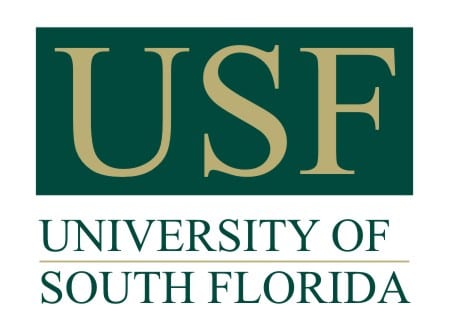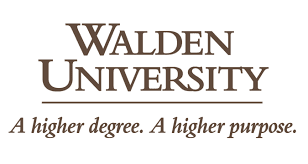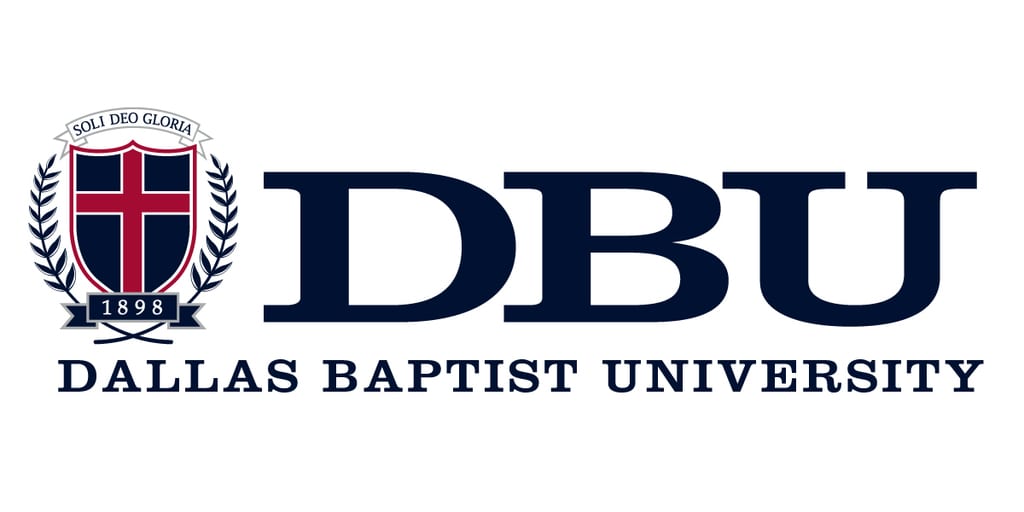The most affordable online Health Sciences master’s degree programs offer a flexible path to earn a graduate degree and advance your career. If you have a baccalaureate in health science, or other science, and want to take the next step in your profession, you may want to consider earning an online Master’s of Science in Health Science degree. It’s easier and quicker than you may think.
The need for qualified healthcare leaders in public health, laboratories, healthcare administration, supportive services, informatics, etc. continues to increase. The Bureau of Labor Statistics estimates that healthcare careers will grow at a remarkable 11%-14% rate between 2018-2028. In healthcare, the higher the educational level, the higher the salary.
Salaries for qualified health science professionals can average around $63,000 for informatics, laboratory managers $69,000, healthcare administration $66,000, or public health $64,000 annually.
Colleges and universities are meeting the demands of working students by offering online, accredited degree programs with faculty and curriculum identical to the on-campus experience. Online programs expand your options in schools, programs, and costs. We’ve researched ten of the most affordable online MSHS programs as a starting point for your school search.
Our Method: Ranking the 10 Most Affordable Online Health Science Master’s Degrees
To rank the 10 Most Affordable Online Health Science Master’s Degrees, Best Degrees editors researched accredited, trusted programs of all kinds. From our initial pool, we ranked programs according to price, accreditation, reputation, and salary potential, using data from IPEDS and Niche, U.S. News and World Report, and other higher education rating publications.
1. University of Texas Rio Grande Valley

The University of Texas Rio Grande Valley is one of Niche’s “Top Public Universities in America” and “Best Value Colleges in America.” If you’re looking for an online Master of Science in Health Sciences with a concentration in nutrition, you may want to consider this one.
The curriculum will prepare you for management positions in the food and nutritional services. (Note: this program does not qualify you to sit for the Registered dietitian exam). The program requires 36-credit hours, about 12 months, and core subjects will involve information systems, research, ethics, and healthcare law. The nutrition concentration classes will include pathophysiology, nutrition in diabetes care, integrative nutrition, etc.
You’ll need a 3.0 GPA for your undergraduate degree, submit academic transcripts for colleges/universities attended, as well as two letters of academic or professional recommendation. UTRGV offers the $1,000 Graduate Dean’s Accelerated Online Scholarship for qualified students.
Fast Fact: Texas’ only accelerated online MSHS Nutrition program
Degree Awarded: MSHS
Learn more at the program site!
2. Northern Kentucky University

Northern Kentucky University has come a long way since its 1946 beginnings in a Trailways Bus Station. Today, over 14,000 students enroll in NKU on campus and online programs. The MS in Health Science at Northern Kentucky University can be completed online in about 24 months. Designed to train you in healthcare research and leadership, this program will show you how to analyze and communicate healthcare operational procedures. You’ll take core courses that cover subjects in current healthcare issues and trends, research methods, instructional design, statistics, and so on. You’re able to choose electives from management or education courses. A capstone project and internship are required for this degree. You’ll need a 2.5 GPA in your undergraduate degree, an undergraduate statistics course, transcripts, etc. The program doesn’t require the GRE. Forbes ranked NKU in its “America’s Top Colleges” and Niche ranks NKU a “Best Value Colleges in America.”
Fast Fact: NKU offers multiple start dates for this program
Degree Awarded: MSHS
Learn more at the program site!
3. Florida Atlantic University

Beginning every fall, spring, and summer semester, Florida Atlantic University has an online Executive Master of Health Administration (MHA).
Offered through FAU’s College of Business, this Association to Advance Collegiate Schools of Business (AACSB) accredited program is offered completely online. You can usually complete the 30-credit hour degree within 15 months while you continue working. The coursework is the same as if you were attending on campus.
You’ll take foundational courses in healthcare law and policy, finance, communications, marketing, global healthcare issues, etc. Also included in the core coursework is “Current Topics in Healthcare Management-Six Sigma Green Belt Certification.”
An undergraduate degree (in any field) with a 3.0 GPA or better, four years of work experience, and GMAT/GRE scores are required for admission. The test scores requirement may be waived under certain conditions. The college periodically offers virtual open houses.
Forbes names FAU as one of its “America’s Best Value Colleges” as well as a “Top Colleges 2019.” FAU has a 60% acceptance rate.
Fast Fact: FAU opened in 1964 and is a member of the State University System of Florida
Degree Awarded: EMHA
Learn more at the program site!
4. University of South Florida

The University of South Florida offers you a 100% online, pre-professional Master of Science in Medical Science (MSMS). This is a concentration of the Master’s Program in Medical Science of the Morsani College of Medicine Graduate & Postdoctoral Affairs.
The degree may be completed in four semesters and is designed to provide a solid foundation for further doctoral study in biomedical studies.
The program offers a wide range of courses in microbiology, physiology, pharmacology, ethics, anatomy, immunology, path-biology, etc. You can apply for admission to this program if you hold a bachelor’s degree with an overall 3.0 GPA and a minimum 3.0 GPA in sciences. Also, you’ll be required to provide test scores from the GRE, MCAT, and DAT. Your transcripts should show completion of minimum science requirements in general, organic chemistry, biological sciences (including labs), English, mathematics, and physics (with labs).
Fast Fact: Ranked a “Best College Value” by The Princeton Review
Degree Awarded: MSMS
Learn more at the program site!
5. Walden University

Walden University has been educating students since 1970 and includes an online MS in Health Education and Promotion. The coursework you’ll complete in this program will allow you to sit for the Certified Health Education Specialist (CHES) and Master Certified Health Education Specialist (MCHES) exams.
Walden University offers a general MS in Health Education and Promotion. There are also concentrations in Health Policy and Advocacy, Population Health, Social Entrepreneurship and Innovation, Emergency Preparedness, Self Design, and Population Health.
The general curriculum requires 50-quarter hours. Foundational and core courses for this degree include studies in Health Behavior Theory, Applied Research in Public Health, Public Health Administration and Leadership, Grant Writing, as well as a capstone project. You’ll add an additional 10-quarter hours for whatever optional specialty you may choose.
A bachelor’s degree and academic transcripts are required for admission. Walden University has a generous transfer policy, accepting up to 25 credit hours from a regionally accredited college or university.
Fast Fact: Accredited by the Higher Learning Commission (HLC)
Degree Awarded: MS
Learn more at the program site!
6. Utah State University

Here’s one of Niche’s “Top Public Universities in America” as well as an “America’s Best College Value 2019” by Forbes. U.S. News and World Report’s “Best Online Graduate Education” schools. Utah State University provides an online Master of Public Health (MPH) with a Health Education and Promotion (HEP) concentration degree. Requiring 45-credit hours, this MPH program can prepare you for a variety of healthcare careers dealing with public health. The curriculum is offered totally online and covers topics in epidemiology, health communication, biostatistics, etc. Utah State University is an applicant for accreditation through the Council on Education for Public Health (CEPH) for this degree. The university is accredited by the Northwest Commission on Colleges and Universities (NWCCU).
Fast Fact: USU Online offers over 60 degree programs
Degree Awarded: MPH
Learn more at the program site!
7. University of Minnesota-Twin Cities

Accredited by the Commission on Accreditation of Healthcare Management Education (CAHME), the University of Minnesota-Twin Cities offers a hybrid Master of Healthcare Administration (MHA) degree. You can also choose an Executive MHA degree track. The school estimates 50-80% of coursework is online, but you’ll be expected to attend on-campus classes as well.
The MHA program requires 60 credit hours for completion. Among the core courses are studies in health finance and economics, information technology, human resource management, statistics, and a clerkship. You’ll also be required to complete 11 credit hours of electives. If you choose the Executive MHA (EMHA) track, you’ll complete 42-credit hours which is offered mostly online. You will, however, be required to be on campus for approximately 25 days over the 25 months of the program.
For admission, it’s suggested you have 3-5 years of healthcare experience in management or clinical areas. In addition to university-required paperwork, you’ll need to submit GRE or GMAT scores.
Fast Fact: Forbes ranks UM-TC in its top 100 of “Top Public Colleges 2019”
Degree Awarded: MHA and EMHA
Learn more at the program site!
8. Dallas Baptist University

If you’re looking for an online MBA with a healthcare concentration, you may want to look at the MBA at Dallas Baptist University.
This MBA with a healthcare concentration is available online and also offers a dual concentration option. In general, the program can be completed in 36-credit hours (48-credit hours for dual concentration) and includes a capstone project. Some of the subjects covered in the program are healthcare policy, long-term care, marketing, strategic planning, accounting, and finance.
DBU’s MBA program is accredited by the Accreditation Council for Business Schools and Programs (ACBSP) and the university is accredited by the Southern Association of Colleges and Schools Commission on Colleges (SACSCOC).
Fast Fact: U.S. News and World Report includes this MBA in its “Best Online MBA” programs
Degree Awarded: MBA
Learn more at the program site!
9. Kent State University

Ohio’s Kent State University has an online MS in Health Informatics. You’ll need a bachelor’s degree with a minimum 3.0 GPA, academic transcripts, GRE scores (if your UG GPA is under 3.0), letters of recommendation, resume, etc., for admission.
Once you successfully complete this degree, you’ll be eligible to sit for the Certified Associate in Health Information Systems (CAHIS) certification exam. This program will train you in analyzing healthcare IT systems, as well as improving communications between the clinical and non-clinical areas of IT in healthcare.
Coursework requires 36 credit hours and at the end of that work, you’ll choose from a thesis, master’s project, internship, or research paper in Information Technology. Didactic coursework includes such classes as Public Health Informatics, Change Management in Health Informatics, Health Informatics Management, etc.
Fast Fact: The first graduating class was in 1914 and was comprised predominantly of women
Degree Awarded: MS
Learn more at the program site!
10. Boston University

Boston University’s School of Graduate Medical Sciences and School of Education have designed an online MS in Health Professions Education degree which will improve your methods and skills in teaching health sciences professions.
The degree path was developed to help you hone your teaching skills in curriculum design, evaluation and assessment, and health sciences teaching methods. The 32-credit hour curriculum studies principles in teaching health sciences, introduction to health sciences research, and a practicum experience.
If you have an undergraduate degree in a health professions discipline, you’ll need at least three years of work experience in your specific health professions degree for admission. Should you hold a terminal degree (MD, OD, etc.) the work experience requirement is waived. Boston University offers three admission options: MS degree, Certificate Program, or Non-Degree.
There’s no work experience required for the certificate program, except for an undergraduate degree which requires two years of work experience. Niche rates Boston University as a “Top Private Universities in America” and “Best Colleges for Education in America.” Forbes ranks the university in its top 100 of “Top Colleges 2019.”
Fast Fact: The Reverend Martin Luther King, Jr. is one of BU’s notable alumni.
Degree Awarded: MS
Learn more at the program site!
What is Health Science?
If you want to work in healthcare, but don’t want to become a nurse or physician, Health Sciences may be more appealing. Health Science is a multidisciplinary field that uses applied science to the delivery of healthcare to animals and humans. The field can be clinical or non-clinical in nature. What does that mean exactly?
Health Sciences examines behavioral, social, and natural sciences and how those aspects influence health and disease prevention in a community or healthcare organization. Health Sciences professionals include public health educators and administrations, medical laboratory technicians and managers, dietitians and nutritionists, healthcare information technology, occupational therapists, epidemiologists, health economics, global health, etc.
Perhaps, the most prominent of postgraduate Health Sciences degrees are Master of Healthcare Administration (MHS) and Master of Public Health (MPH). However, you can earn a Master of Science in Health Sciences (MSHS) which offers concentrations in a variety of subjects such as health education or information technology.
How Can I Save Money on a Master’s In Health Sciences?
Fortunately, there are several ways to save money while getting an advanced degree. Here are just a few:
Tuition Reimbursement Programs – If you currently work in a healthcare area, such as a healthcare system or healthcare support company, you may want to check with your Human Resources Department. As healthcare continues to grow in the U.S., employers see employee tuition reimbursement as a good investment and it’s frequently part of an employee’s benefits package. Some employers will pay the full tuition and some will pay a partial amount; but, anything your employer pays will be a cost savings for you.
Graduate Program Length: You should check on what the time commitment is for your particular program. The shorter the amount of time you’re in school, the more you’ll save. Many graduate programs range in 30-48 credit hours in length or about two years. You may also be able to transfer hours from other schools you have attended towards the program’s total hours. Additionally, schools may offer credit for life experiences/work or through exams offered through the College Level Examination Program (CLEP). Be sure to talk with an admission advisor about transfer credits, experience credits, and CLEP acceptance.
School/Department Scholarships: Often, programs may offer financial assistance through grants or scholarships. Check with your department about merit-based scholarships they may offer and for which you may qualify. Also, some schools are offering tuition reductions for new students.
Federal Financial Aid: In general, federal financial assistance for graduate students is limited. The most prevalent aid comes in the form of loans; and perhaps, grants, scholarships, and work-study. To be considered, you’ll need to complete the Free Application for Federal Student Aid®.
Is A Master’s In Health Sciences a Good Investment?
In great part, how much you earn will depend on your specific healthcare career. Healthcare is a growing field (more than 16 million Americans employed), and the Bureau of Labor Statistics estimates job growth at 14% between 2018-2028, which is much faster than any other occupation.
Healthcare is a field that reveres and requires education. The more education you have, the more money you may earn. PayScale estimates the average MSHS salary is an annual $76,000. That figure doesn’t include benefit compensation such as 401k, health insurance, or paid leave. Similar programs like a Masters in Healthcare Administration also have affordable online MHA programs. And the salary is also similar.
According to the U.S. Census Bureau, a master’s degree can earn you about $40,000 more annually than a bachelor’s degree. The cost of a graduate degree may not be as prohibitive as you may think, especially with online degree programs. On average, a master’s program can range from $20,000-$40,000. The cost-reward is for you to decide. Good luck!
Related Rankings:
- Best Health Science Master’s Degrees
- Best Online Health Science Master’s Degree
- Fastest Online Health Science Master’s
- Most Affordable Online Health Sciences Master’s
- Top Nutrition Master’s Programs
- Occupational Health and Safety Degree Programs Online
- Fastest Online Occupational Health and Safety
- Cheapest Online MPH Programs
- Cheapest Online Psychology Programs